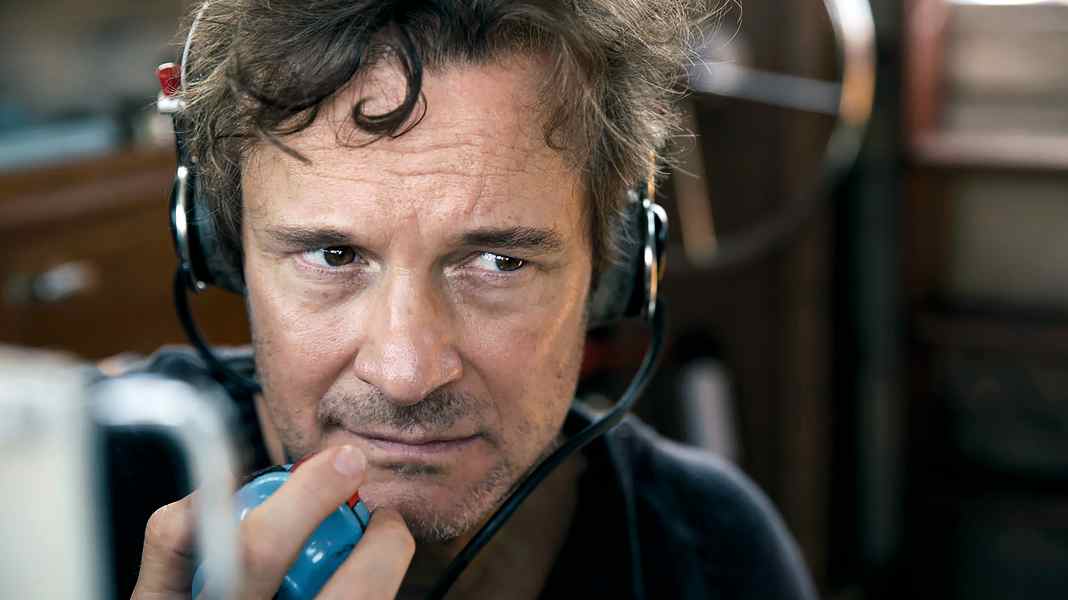
The tragic story of British sailor Donald Crowhurst, who took part in the first Golden Globe Race in 1968, is now available to watch for free in the ARD media centre. The film "Before Us the Sea", starring Colin Firth, tells the story of Crowhurst's fateful decision to cheat and report false positions during the single-handed circumnavigation. The film from 2018 impressively shows how the amateur sailor is broken by expectations and his own ambition.
The film was released on the 50th anniversary of the original Golden Globe Race and the new edition of the retro race in 2018. Click here to watch the film in the ARD media library.
The Golden Globe Regatta
The Golden Globe Regatta was organised by the British newspaper "Sunday Times" in 1968. It was to take the clipper route around the world without a stopover. A year earlier, Francis Chichester had completed the route with a stopover in Sydney, which caused a sensation in the UK. Donald Crowhurst, who ran a poorly performing navigation electronics company in the south of England, was also fascinated by the idea of such an adventure.
Crowhurst's ambitious project
Crowhurst designed a futuristic trimaran called the "Teignmouth Electron" for the regatta. The boat was to be equipped with regulator-controlled bilge pump systems, self-releasing buoyancy bodies and a complex on-board computer system. On paper, the result was a seemingly unbeatable racing machine. However, the realisation failed due to a lack of money and time. Crowhurst contractually assured his main sponsor that he would buy the trimaran back if it was unsuccessful - which would have meant the end of his business.
On the morning of departure, Crowhurst nervously left his family and set sail. Just a few days after the start, considerable defects became apparent on the boat. Crowhurst was faced with a dilemma: he could neither sail the planned route nor abandon it without ruining his family. So he took the momentous decision to falsify his position and feign a daring race to catch up.
Between lies and despair
Whilst Crowhurst was already being celebrated at home as a possible winner, he was in the Atlantic after a repair stop in South America. He waited for his opponents and was inwardly broken by the situation for which he was responsible. In addition to remorse and homesickness, there was the dilemma that he had to be the fastest to win the prize money - but the last to avoid being found out. Crowhurst wrote in his logbook: "Nobody will want to look at the logbooks of the last one."
After Robin Knox-Johnston was the only participant to reach the UK in one piece, Crowhurst only had to sail home to complete his scam. But he did not. After weeks of wandering around the Atlantic, the pangs of conscience had gnawed at him to such an extent that his mental state had been seriously damaged. The trimaran was later found unmanned. Logbooks as well as sound and film recordings were found on board, showing Crowhurst dancing on deck in a delirious state.
Film realisation
The makers of the film "The Mercy" take the liberty of painting a broader picture of the story than has been the case to date. They consistently focus on the family of the lost sailor. This point of view is the decisive, but also the only interpretation of the dramaturges. The lavishly staged journey back in time to 1968 impresses with its detailed set design, from contemporary vehicles to the yachts in a recreated boat exhibition.
The centrepiece of the film is the "Teignmouth Electron" itself, an original replica based on the existing plans. Down to the last detail, such as the fitting arrangement, colour scheme and upholstery below deck, the boat gives the impression of having been filmed on board in 1968. The heart-warming story is thus brought to life in an impressive way.
Sir Robin Knox-Johnston was impressed by the film when it was released. "Good, especially because the story wasn't overdramatised. They didn't make a Hollywood blockbuster out of it and stuck very close to the facts," the British sailor told YACHT, praising the realistic portrayal. Knox-Johnston was "very impressed by how realistically the story was portrayed."
Knox-Johnston himself only learnt about Crowhurst's falsified position reports once he was ashore. "I heard that he was on his way when I passed New Zealand. But his name didn't ring a bell," recalls the Briton. After the race, Knox-Johnston donated the prize money to Crowhurst's widow: "It was a very simple consideration: The money was due to the fastest according to the announcement. To be honest, I was only interested in the first performance the whole time. I didn't think about the prize money during the race."
More sailing films worth seeing
For sailing enthusiasts, there are numerous other films worth recommending in addition to "Before Us the Sea". These include classics such as "Wind", "The Sea Wolf" and "Styx" as well as more recent productions, such as the documentary "Maiden" about the first all-female crew in the 1989/1990 Whitbread Round the World Race and "True Spirit" about the young circumnavigator Jessica Watson.
More Films and documentaries we have compiled for you here.

